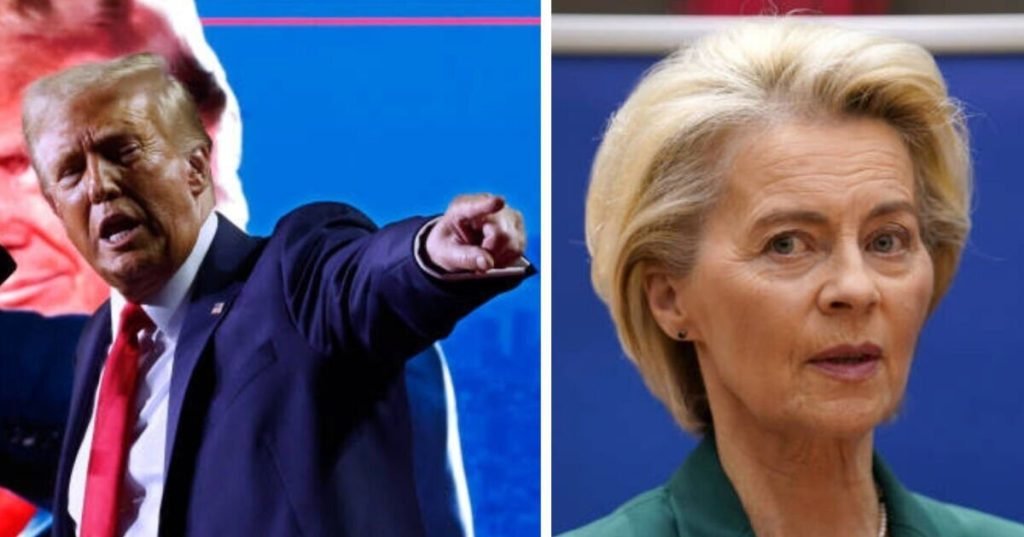
Investors are growing increasingly concerned about the impact of tariffs Donald Trump has threatened to unleash on Europe, with banking figures fearing the continent will be the “main losers”.
Trump, the US’s president-elect after a landslide victory in November, has announced plans to slap 25% tariffs on imports from Canada and Mexico, something which could wreak havoc on both economies.
Though Beijing is expected to remain a central focus, the UK, and parts of the European Union are also expected to face targeted measures, Yahoo Finance reports.
Analysts at Barclays told The Telegraph that Trump’s plans are seeing investors look towards to the US.
“Europe is expected to be one of the main losers of ‘America first’ policies, and unsurprisingly we’ve seen outflows from the region tick back up since the election,” they told the outlet.
“Most investors seem willing to allocate their next investment dollar to the US over Europe for the foreseeable future.”
Trump’s proposed 10% universal tariff on all imports in the US may significantly disrupt European growth, various analyses have suggested, as well as intensifying monetary policy divergence, and strain key trade-dependent sectors like cars and chemicals, Euronews reports.
But it’s feared the long-term effects on the continent’s economic resilience could be an even bigger issue if tariffs result in drawn out trade conflicts, with the European Central Bank (ECB) forced to bring in aggressive rate cuts to soften the blow.
The bloc exported €502.3billion (£417.8bn) in goods to the United States last year, a fifth of all non-EU exports, European Commission data shows.
Exports of machinery and vehicles to the US account for €207.6billion (£172.7bn), chemicals €137.4bn (£114.2bn), and other manufactured goods €103.7billion (£86.2bn).
Together they make up almost 90% of the EU’s transatlantic exports, according to Euronews.
Senior EU diplomats and officials have told Politico that Brussels is mostly waiting out the US President’s plans, especially on trade and security, as opposed to announcing preemptive strikes that provoke harmful action from across the other side of the Atlantic.
Meanwhile, UK Prime Minister Sir Keir Starmer insists he is optimistic about Britain’s economic relationship with Washington under the incoming Trump administration.
Sir Keir’s official spokesman said this week: “We look forward to working with President-elect Trump including on a wide range of his policy priorities to improve the UK-US special relationship, including when it comes to trade and investment.
“I am not going to get drawn on specific policies before he takes office, but clearly the fact that a million Americans work for UK-owned businesses and vice versa and the fact that UK-US trade was worth £304 billion in the last year, clearly that is something that we want to build on.”






